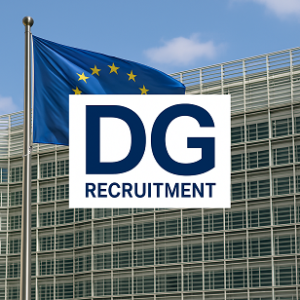
🌍 Latest Updates on EU Work Permits and Visas – 2025
As Europe faces growing labor shortages in key industries, the European Union and its member states have introduced new work permit and visa policies to attract skilled workers and simplify migration processes. Whether you’re a professional, entrepreneur, freelancer, or digital nomad, these changes make it easier than ever to work and live in the EU.
Here’s a comprehensive guide to the latest updates in 2025.
🔹 EU Talent Pool: A Game-Changer for International Job Seekers
The EU Talent Pool is one of the most significant immigration reforms aimed at addressing skill shortages across Europe. It serves as an online platform connecting non-EU professionals with European employers facing labor shortages.
Key Features:
✔️ Centralized platform: Employers from multiple EU countries can access a pool of pre-screened candidates.
✔️ Focus on shortage occupations: Priority is given to sectors like healthcare, IT, engineering, construction, and green energy.
✔️ Faster visa processing: Member states participating in the Talent Pool will offer streamlined work permit applications.
✔️ Flexible pathways: Includes options for skilled workers, recent graduates, and even freelancers.
📌 More info: European Commission – EU Talent Pool
🔹 Country-Specific Work Permit Changes
Several EU countries have recently reformed their immigration policies to attract more foreign workers and make work permits easier to obtain.
🇩🇪 Germany: Skilled Immigration Act 2.0 (Fachkräfteeinwanderungsgesetz)
Germany has revamped its work permit system to fill its growing labor shortages, particularly in IT, healthcare, engineering, and manufacturing.
📌 What’s new?
✔️ Lower salary and qualification requirements for EU Blue Card applicants.
✔️ Easier recognition of foreign qualifications, especially for IT and healthcare professionals.
✔️ Opportunity Card (“Chancenkarte”) – a points-based visa allowing job seekers to enter Germany and search for employment for up to 12 months.
✔️ Job seeker visa extended from 6 to 12 months, with permission to work part-time while searching for a job.
📌 More info: Germany’s Skilled Immigration Law
🇫🇷 France: Expansion of the “Talent Passport” Visa
France has introduced new work visa pathways under its Talent Passport scheme, aiming to attract high-skilled professionals, entrepreneurs, and investors.
📌 Key updates:
✔️ New “Talent Passport – Shortage Occupations” category for priority industries.
✔️ Fast-track processing for STEM professionals, tech specialists, and healthcare workers.
✔️ Digital residence permits for easier renewals and fewer bureaucratic delays.
📌 More info: France Visa Website
🇳🇱 Netherlands: Highly Skilled Migrant Program Reforms
The Netherlands continues to refine its Highly Skilled Migrant (HSM) program to attract non-EU professionals, particularly in tech, engineering, and finance.
📌 Key changes in 2025:
✔️ Lower salary thresholds for younger professionals and recent graduates.
✔️ Startup visa program expanded with more funding options.
✔️ Faster processing times for recognized employers.
📌 More info: Dutch Immigration and Naturalisation Service (IND)
🔹 EU Blue Card: More Flexibility & Lower Salary Thresholds
The EU Blue Card – Europe’s primary work visa for highly skilled professionals – has undergone significant changes to make it more competitive.
📌 What’s new in 2025?
✔️ Lower salary thresholds in many countries (1.0x–1.2x national average gross salary).
✔️ Faster processing times and easier intra-EU mobility.
✔️ Inclusion of freelancers and highly skilled recent graduates.
✔️ Simplified recognition of foreign qualifications, particularly in IT and engineering.
📌 More info: European Commission – EU Blue Card Updates
🔹 Rising Popularity of Digital Nomad Visas
Many EU countries are expanding their digital nomad visa programs in 2025 to accommodate the growing remote work trend.
📌 Top digital nomad-friendly countries in 2025:
✔️ Portugal – Up to 2 years with tax benefits. Apply here
✔️ Estonia – Residency for freelancers and remote employees. Apply here
✔️ Croatia – One-year visa, renewable with family reunification. Apply here
✔️ Greece – Visa with low tax rates for foreign remote workers. Apply here
💡 Why digital nomad visas are booming?
- No local employment required – you can work for companies based anywhere in the world.
- Tax advantages in many EU countries.
- Easier residency pathways for remote workers.
🔹 Easier Family Reunification Rules
Many EU countries have made family reunification faster and more inclusive.
📌 Key changes in 2025:
✔️ Faster processing for spouses and dependents.
✔️ Work rights granted to family members of skilled visa holders.
✔️ No language requirement for initial residency in some countries.
📌 More info:
Final Thoughts: What This Means for You
The EU’s visa and work permit policies are evolving to attract highly skilled professionals, entrepreneurs, and remote workers. The EU Talent Pool, Blue Card reforms, and digital nomad visas make it easier than ever to work and live in Europe.
💡 Planning to move to the EU?
✔️ Check visa eligibility based on your profession.
✔️ Consider a digital nomad visa if working remotely.
✔️ Stay updated with immigration laws as more changes are coming in late 2025.
✈️ Which EU country interests you the most?
Contact us today with your query, and we will be there for you!
Would you like more details on a specific country? Let me know, and I’ll tailor the guide for you! 😊
